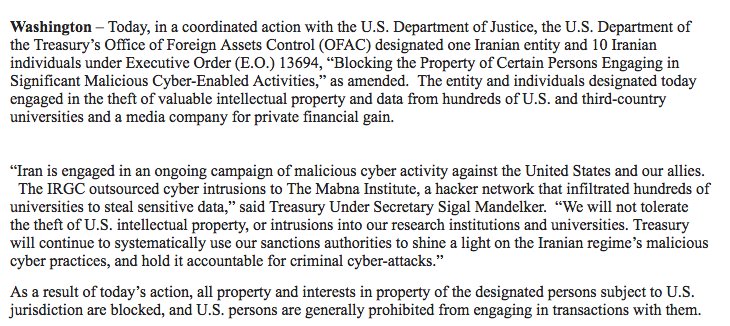
This is somehow still going, so I’m going to reluctantly clarify.
1.This was meant to be funny. I don’t care how much you swear on Twitter.
1.This was meant to be funny. I don’t care how much you swear on Twitter.
https://twitter.com/Joseph_Marks_/status/1313204664167473161
2. It was aimed at a few dozen cyber and election security policy folks whose tweets I sometimes embed and who I also speak w/ frequently. Most of them have told me to f*** off in the comments (I hope/ think also humorously).
3.If you don’t know me and we’ve never spoken I’ve almost certainly never embedded any of your tweets. Prove me wrong and I’ll buy you a drink of your choice.
4.I write the Washington Post’s Cybersecurity 202 newsletter, which focuses on the intersection between cyber, election security, policy and politics. It’s a reported newsletter, not a tweet farm. If that sounds interesting, I hope you’ll check it out. subscribe.washingtonpost.com/newsletters/#/…
• • •
Missing some Tweet in this thread? You can try to
force a refresh



